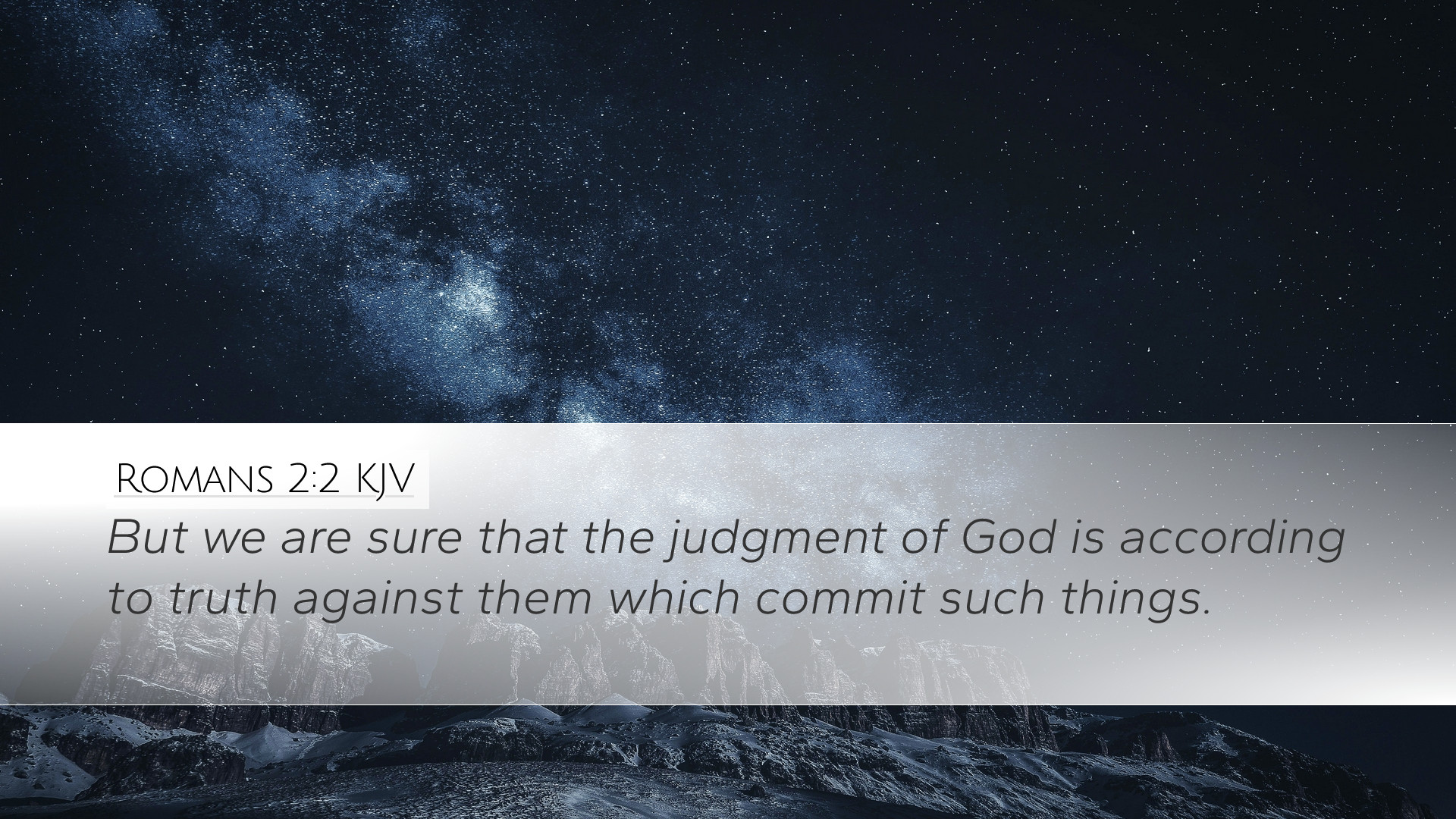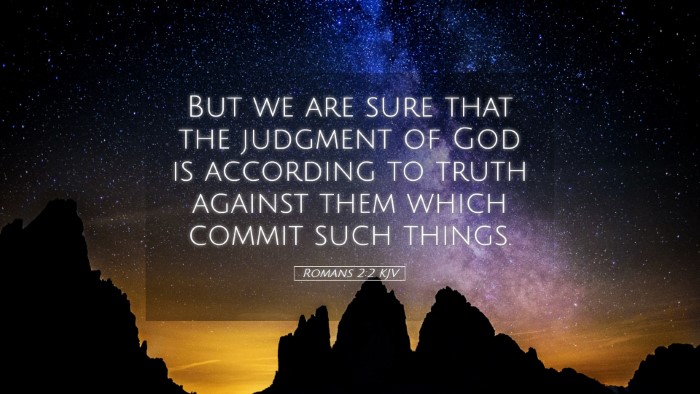Commentary on Romans 2:2
Bible Verse: Romans 2:2 - "But we are sure that the judgment of God is according to truth against them which commit such things."
Introduction
The verse presented is a critical assertion made by the Apostle Paul, addressing the matter of divine judgment. This commentary combines insights from esteemed public domain commentaries such as Matthew Henry’s Commentary on the Whole Bible, Barnes' Notes on the Bible, and Clarke’s Commentary on the Bible to provide a comprehensive analysis suitable for pastors, students, theologians, and Bible scholars.
Contextual Analysis
To fully grasp Romans 2:2, one must examine its surrounding context. Paul, speaking to the Jews and Gentiles, emphasizes the impartiality of God’s judgment. He contrasts the moral superiority that the Jews believed they possessed due to their covenant with God against the backdrop of the universal sinfulness of humanity. Paul’s argument builds upon the previous chapter where he outlines the consequences of sin and the need for repentance.
The Judgment of God
Paul’s assertion that the judgment of God is according to truth highlights the character of God’s justice. Each judgment rendered by God is not arbitrary or capricious but is grounded in the absolute moral order he established. Matthew Henry articulates that God's judgments are based on his law and the righteousness of that law, meaning God cannot overlook sin.
- Truth as a Foundation: The phrase "according to truth" suggests that God’s judgment is grounded in reality and divine truth, not merely human opinion or deception.
- Impartiality of Judgment: Paul affirms that God’s judgment comes to all, indiscriminate of status or background, an important aspect affirmed by Clarke who notes that the same standard applies to both Jew and Gentile.
Condemnation of Sin
In the broader context of Romans 1 and 2, Paul emphasizes that all humanity is guilty of sin. This verse serves as a pivotal reminder that judgment is not solely for those who do not know the law, but also for those who do and yet fail to obey it. Barnes notes that the moral law applies universally and that blindness to sin does not exempt one from consequences.
There is a strong theme of accountability throughout Paul’s discourse. The true character of sin must be recognized for individuals to understand the depth of their need for salvation.
Application for Believers
The implications of Romans 2:2 are profound for the contemporary believer. It calls for self-examination and recognition of one’s own sins before casting judgment on others. The consistency of God’s judgment serves as a warning against hypocrisy, a significant theme highlighted by Matthew Henry:
- Call to Humility: Believers must approach others with humility, recognizing that they too are subject to God’s standards.
- Encouragement towards Holiness: Understanding that God judges according to truth encourages believers to pursue holiness and truth in their lives.
Conclusion
In conclusion, Romans 2:2 encapsulates the gravity of God’s judgment while affirming God’s character as just and truthful. It serves as a critical reminder of the universal need for grace and redemption. The insights from the aforementioned commentaries align to paint a holistic picture of accountability before a righteous God. As pastors, students, and scholars reflect on this verse, they are called to engage deeply with its implications, ensuring that their lives reflect the truth of God’s Word and His righteous judgment.


